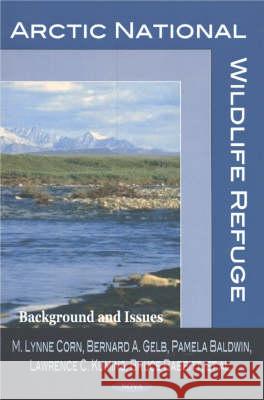Arctic National Wildlife Refuge: Background & Issues » książka
Arctic National Wildlife Refuge: Background & Issues
ISBN-13: 9781590336380 / Angielski / Twarda / 2003 / 150 str.
The rich biological resources and wilderness values of north-eastern Alaska have been widely known for about 50 years, and the rich energy resource potential for much of that time. The future of these resources has been debated in Congress for over 40 years. The issue for now is whether to open a portion of what is now the Arctic National Wildlife Refuge (ANWR) to allow the development of potentially the richest on-shore source of oil remaining in the United States, and if so under what restrictions. The coastal northern plain of the Refuge is the focus of the debate. This remote and largely untouched area is an example of an arctic ecosystem that, by virtue of being essentially intact, is increasingly rare. It has been called 'America's Serengeti', for vast herds of caribou, for the many nesting and feeding migratory birds, and for its predators such as grizzly bears, polar bears, wolves and golden eagles. The area also has immensely promising oil prospects, which some feel could be as productive as Prudhoe Bay. It is heralded as a place which could help reduce national dependence on foreign oil and keep the Alaskan oil pipeline in use for decades. Advocates for development forese











